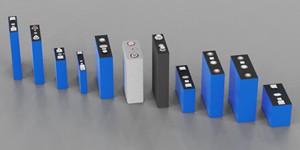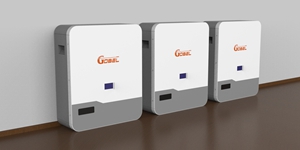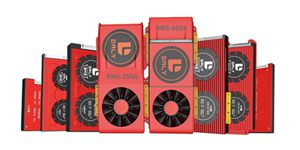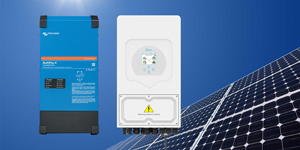INVERTER EFFICIENCY
Lithium Battery Supplier-
EU Stock Gobel Power 51.2V LiFePO4 Battery Case DIY Kit with EVE 314Ah Cells
Ship from China US$1,598.00
-
Germany warehouse Gobel Power 51.2V 100Ah GP-SR3-PC100 LiFePO4 Server Rack Battery
Ship from China US$997.50
-
JKBMS Inverter BMS JK-PB1A16S-10P 100A BMS with Active Balancer Bluetooth
Ship from China US$99.00
-
JK ESS Inverter BMS 16S150A 16S200A 2A Active Balance Bluetooth
Ship from China US$99.00
-
Gobel Power DIY Kit 51.2V 314Ah 280Ah Battery Case Kit with BMS Circuit Breaker
Ship from China US$458.00
-
Deye SUN-5K-SG03LP1-EU 5kW Single Phase 2 MPPT Hybrid Inverter for Low Voltage Battery
Ship from China US$1,354.00
-
3300W High Voltage LiFePO4 Lithium Battery Charger
Ship from China US$760.00
-
3600W LiFePO4 Lithium Battery Charger
Ship from China US$640.00
-
EVE 3.2V 50Ah LiFePO4 Battery Cell Fast Charge Version
Ship from China Get Price
-
Solution Battery Active Equalizer -
Solution Battery BMS
Inverter Efficiency: The Key to Optimal Performance Inverters play a crucial role in modern renewable energy systems, converting DC power from solar panels into AC power for household use. However, not all inverters are created equal. Inverter efficiency is a vital factor to consider when selecting a suitable inverter for your renewable energy system. Inverter efficiency refers to the ratio of usable output power to the input power, measured in percentages. Efficient inverters convert a higher proportion of the input power to usable output, resulting in better system performance, reduced energy losses, and lower energy costs. Inverters with high efficiency ratings, typically above 97%, offer numerous benefits, including: 1. Increased Energy Harvest: Higher-efficient inverters convert more of the available solar energy into usable electricity, resulting in increased energy production and reduced energy waste. 2. Reduced Heat Generation: Inverters with high efficiency produce less heat, reducing the risk of overheating, premature component failure, and increasing system lifespan. 3. Longer Inverter Lifespan: With reduced heat generation and lower energy losses, high-efficiency inverters tend to last longer, reducing maintenance costs and downtime. 4. Cost Savings: By optimizing energy conversion, high-efficiency inverters minimize energy waste, resulting in significant cost savings over time. 5. Increased Feed-in Tariffs: High-efficiency inverters can generate more eligible renewable energy credits (RECs) due to increased energy production, increasing the potential for higher feed-in tariffs. In conclusion, inverter efficiency plays a vital role in the overall performance and efficiency of renewable energy systems. By selecting inverters with high efficiency ratings, homeowners and businesses can maximize energy production, reduce energy costs, and prolong the lifespan of their renewable energy systems. When considering an inverter, prioritize high efficiency to ensure optimal system performance and value.
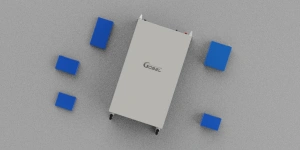
 Europe Warehouse
Europe Warehouse